NEWS
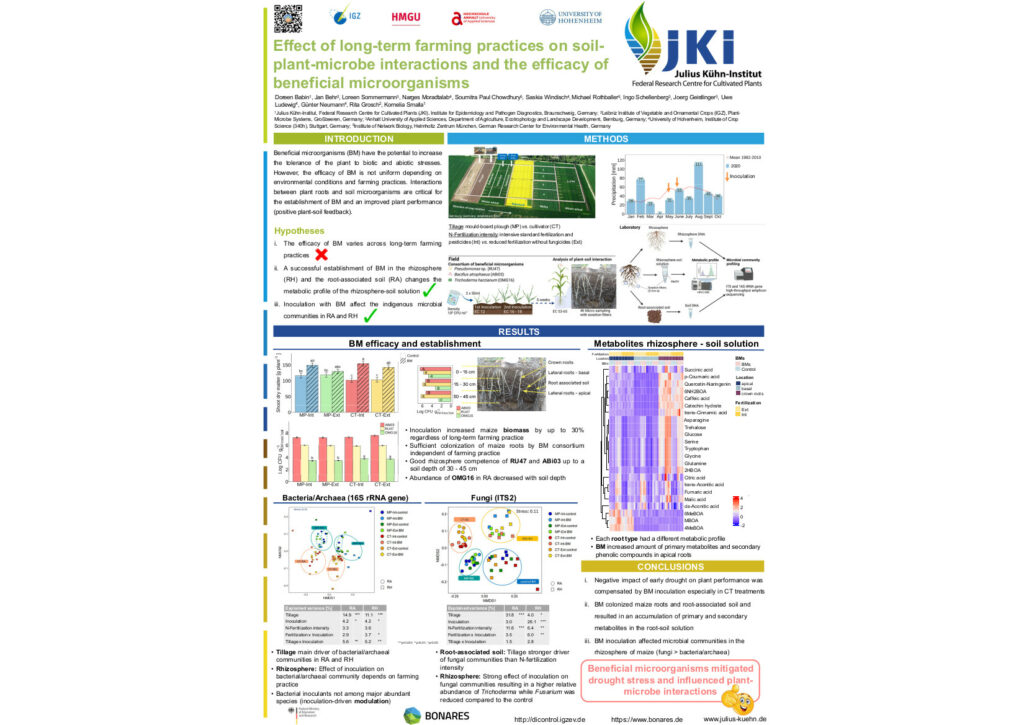
August 2022
The 18th International Symposium on Microbial Ecology (ISME), which takes place every two years, was held in Lausanne, Switzerland. The conference is a leader in the field of microbial ecology. On average, about 1,750 international scientists attend the conference. The DiControl team was able to present its latest findings on the effect of long-term farming practices on soil-plant-microbe interactions and the efficacy of beneficial microorganisms.
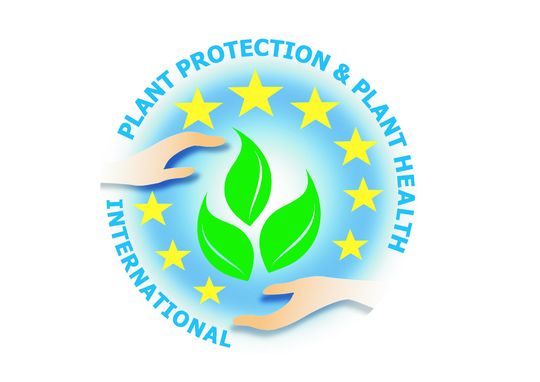
November 2021
The DiControl team is co-host of the 10th symposium “Biostimulants, soil improvers, bioprotectants: promoters of bio-intensification in plant production” organized by the JKI and the DPG.
The symposium will take place on 23 November 2021 from 11:00-17:00 (CET, UTC +1) as a Video Conference.
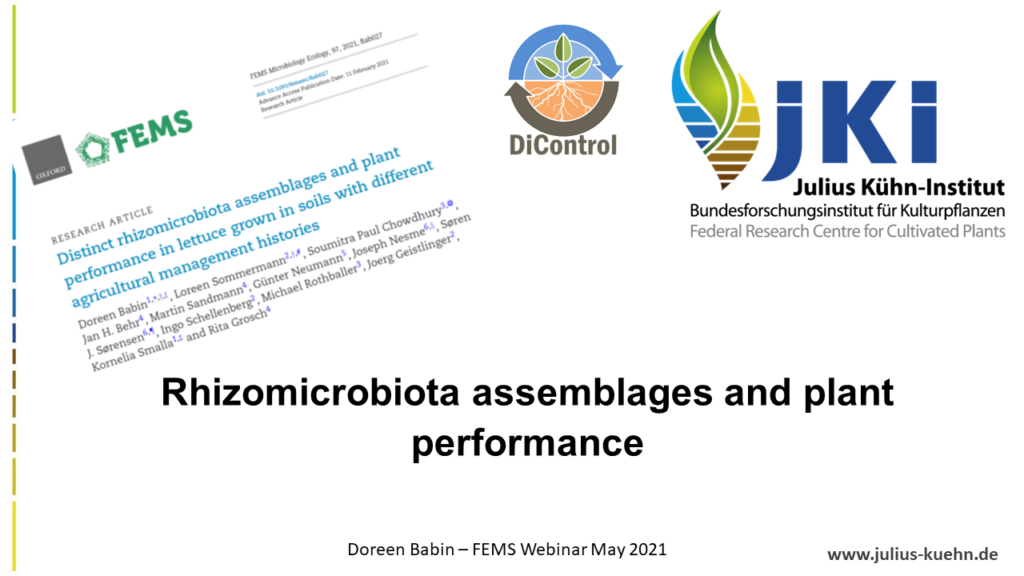
May 2021
The FEMS Microbiology Ecology Webinar addresses sustainable agriculture by showing the interactions between common crops and their microbiomes. In her presentation, Darin Babin demonstrates how modern sequencing techniques can be used to link rhizomicrobiota assemblages and plant performance.
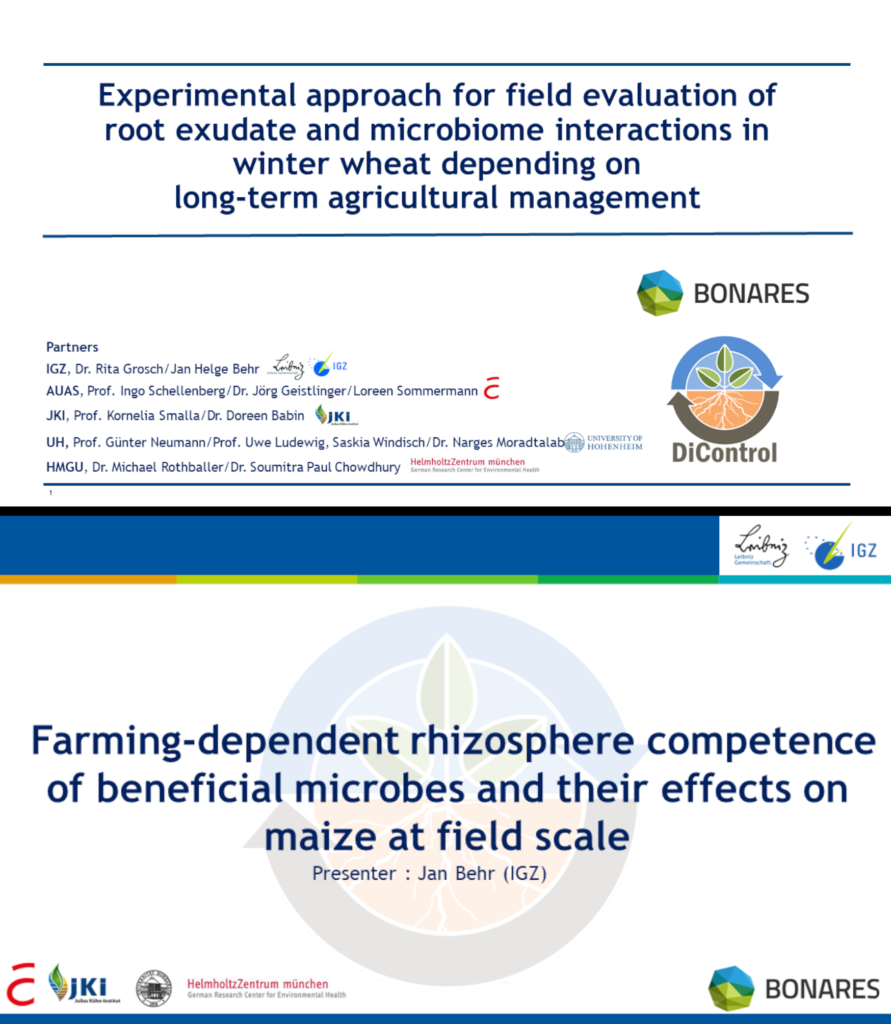
March 2021
The DiControl team presented their results of the second phase at the annual meeting of the DPG working group – “Biological Control of Plant Diseases“. In their presentation, Nages Moradtalab and Doreen Babin addressed the interaction of the microbiome in winter wheat depending on agricultural management. The analysis of root exudation under field conditions using root windows was another focus of their presentation. In another talk, Jan Helge Behr showed the management-dependent rhizosphere competence of beneficial microorganisms under field conditions. A special highlight of his presentation was the increased stress tolerance in maize plants after the treatment with beneficial microorganisms.
November 2020
Publication of a video illustrating the installation of a root observation window at the long-term field experiment LTE-1 located in Bernburg. One of the most important functions of roots is the release of metabolic products (root exudate) to the rhizosphere, which enables the plant to shape the microbial community in the rhizosphere. In contrast to the use of artificial root boxes, which limit the root growth and nutrition availability, the DiControl project uses root windows to analyse root exudation pattern under field conditions. This approach allows us to get a more realistic insight into the interplay between plant and rhizosphere microorganisms.
October 2020
Participation of Dr. Doreen Babin at the “Science Slam-Talks im Wissenschaftsjahr 2020/21 – Bioökonomie”. The Science Slam-Talks is a project founded by the BMBF to clear up prejudices and to transfer knowledge in the field of bio-economics to a broader audience. During the presentation (German only) Dr. Doreen Babin explains how microorganisms form the soil memory and thereby contribute to a healthy soil. In an easy-to-follow and entertaining way she gives insights into recent methodologies and experiments from DiControl. The talk is followed by questions and discussions how this knowledge can contribute to a sustainable agriculture.
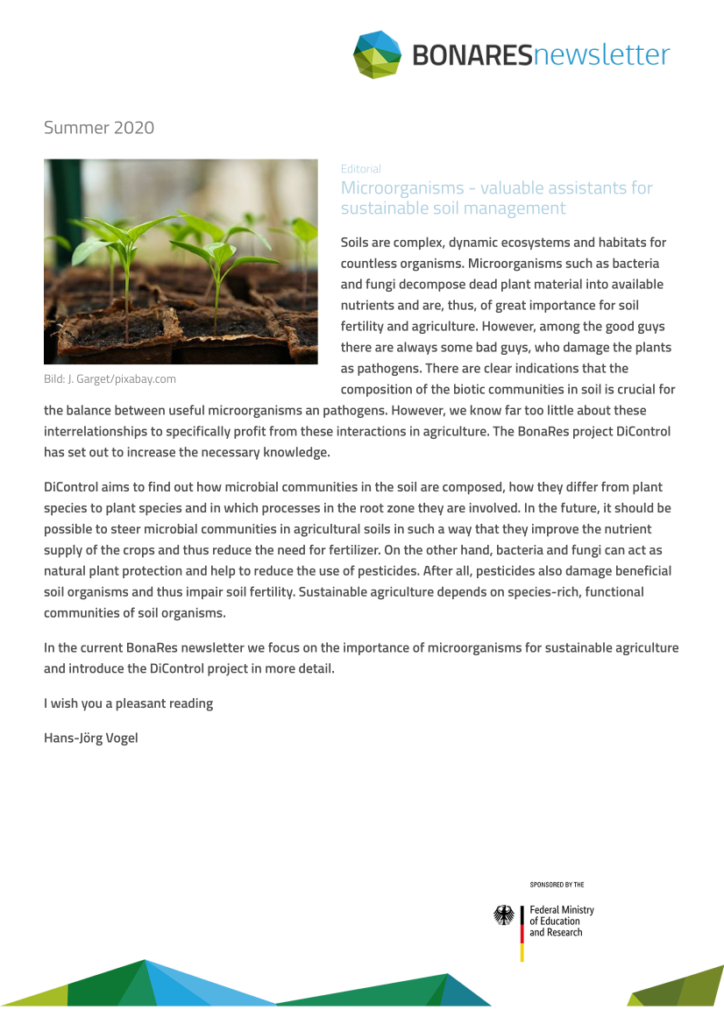
September 2020
Publication of the DiControl Newsletter on the BONARES homepage. In the September issue of the BonaRes newsletter, the DiControl team shows the importance of microorganisms for sustainable agriculture and present the project in more detail. We provide further insight into our work with long-term field trials and how management practices affect the soil microbiome.